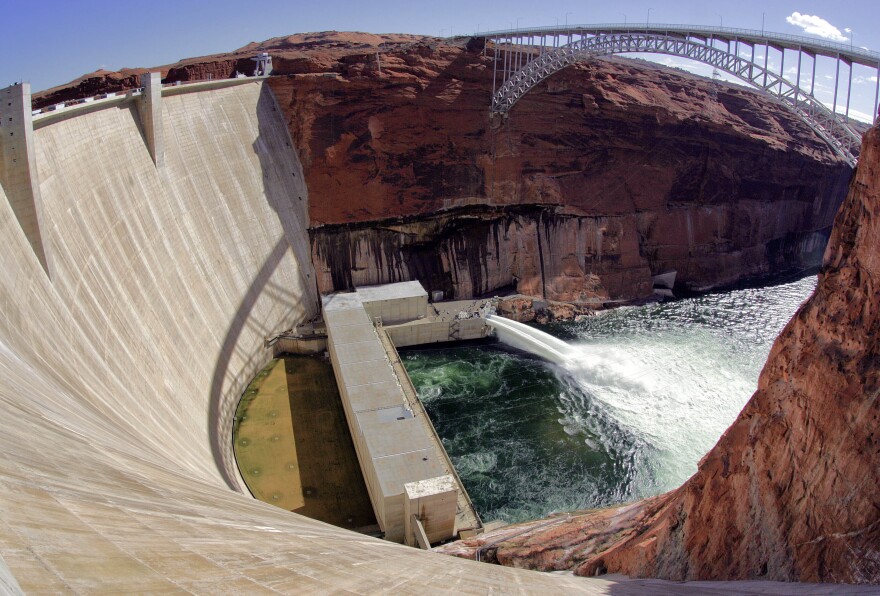The U.S. Bureau of Reclamation decided against sending water rushing through the Grand Canyon this fall to redeposit sediment because of persistent drought.
Agency officials said opening the bypass tubes at the Glen Canyon Dam would have reduced the elevation of Lake Powell at a time when it's at historic lows. The agency also cited projected losses in hydropower.
A remarkable monsoon left an abundance of sand in the Colorado River system that has helped build up beaches and sandbars in the Grand Canyon.
Some have criticized the bureau's decision and said they suspect it was based on politics, not science.


